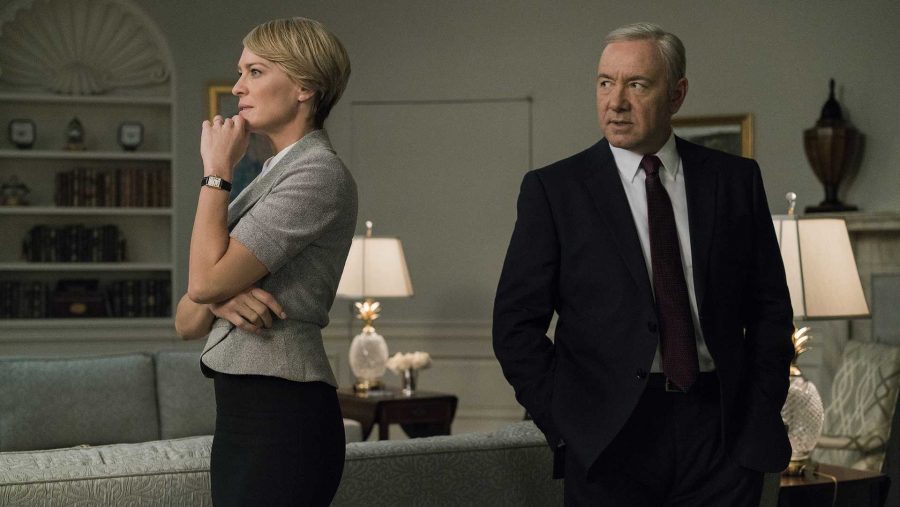“House of Cards” is my favorite show. At least, it was. I’d seen it happen before — with Bill Cosby, Bill O’Reilly, and too many others — but that was never going to happen with my show. And now I don’t know if I can keep watching.
In late October, actor Anthony Rapp alleged in a BuzzFeed interview that Kevin Spacey had made an unwanted sexual advance toward him in 1986. Spacey, who plays protagonist Frank Underwood in “House of Cards,” was 26 at the time, and Rapp was 14.
More reports kept pouring in. Eight crew members who had worked on “House of Cards” came forward and said Spacey was also a monster to them. The crew said the actor was “predatory” and created a “toxic” environment on the set, as reported by CNN. One crew member alleged that Spacey sexually assaulted him.
I imagine I went through the same process that fans of “The Cosby Show” or “The O’Reilly Factor” had. Confusion, disbelief, and even anger are all normal reactions to this sort of thing. I loved my show, which was full of fictional drama, scandal, and evil. Never did I think the lead actor would be swept up in real-life drama, scandal, and evil.
RELATED: Townsend: Making sense of TV dad, alleged sexual predator
This reality leaves me and the hundreds of thousands of viewers with a moral question: Should we still watch “House of Cards”?
There’s always complexity when separating the art from the artist. Let’s consider three different perspectives to figure out the answer.
We’ll start with an extreme view: We shouldn’t enjoy anything produced by those who act unjustly. This is an exceedingly slippery slope. Because everyone has done wrong before, it’s going to be pretty difficult to find anyone worthy of creating art. If we shut out any artist who has ever lied, driven drunk, or called someone a mean name, then we’re left with Mother Theresa starring in all our movies.
A more nuanced approach might work better. We should only give the shut-it-down treatment to those who have a history of wrongdoing. This approach is better, but it may lead to over- and underreacting to certain misdeeds. For example, most of us could stomach a movie starring an actress who routinely cheats on her husband. However, many would draw a hard line if she attempted to murder him. We need a more dynamic way of answering the question, “Should I still watch this?”
The answer comes down to one word: conscience. Everyone’s morals are a little bit different. Some people don’t eat meat for ethical reasons. Others refuse to read books with lots of swear words.



